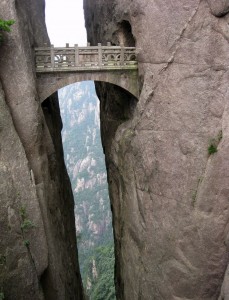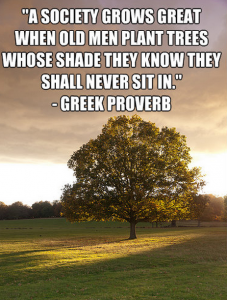分享,是心靈上「毅行者」的職責。
守則當然是「誠」:既不欺騙自己,亦不欺騙別人。
所以自己不懂得的東西,絕對不會拿出來和別人「分享」!
攀山者有兩種不同的路徑,
一種是心靈中抽象的路徑,
可以說是目標,也可以說是攀山的工具,
殊途同歸,所有攀山者都相同,
因為大家都是在追求「真、誠、愛、智慧」;
另一種是人生的路徑,
所有攀山者都必須自己去嘗試和尋覓,
百花齊放,各自各精采!
There are two ways of spreading light:
to be the candle or the mirror that reflects it.
( Edith Wharton )
事實上,愛智的人從來都不會鄙薄從山下向上爬的人,
只要那些人是努力以赴,真心地向上爬,
因為他自己也是從那裡開始爬上來的。
愛智的人每攀高一段距離之後回顧,
總會發現之前的自己,是如何的淺薄無知,
而且沒有人知道山巔在那裡,
所以一個矢志不移的攀登者,
怎可能不懂得甚麼是謙卑 humility!
在追求智慧的路途上,每一個人的能力都有極限,
善心人只能夠鼓勵你努力向上爬,
如果有善心人告訴你山巔的風光美不勝收,
他其實是在欺騙你!
Believe those who are seeking the truth.
Doubt those who find it.
( Andre Gide )
雖然明白沉醉、麻木、自負、一意孤行的心靈,
往往會覺得哲學討厭,
但哲學卻能夠喚醒沉睡了的心靈。
的確是一個吊詭。
正如矢志不移的攀山者必須「歧視無知和愚蠢」,
而歧視無知和愚蠢,既指現象,也指人,
因為人是無知和愚蠢的執行者。
於是攀山者必須常常懷著一顆警惕的心,
才能夠擁有「去蕪存菁」和「擇善固執」的能力,
才能夠「苟日新,日日新,又日新」一樣,
也是一個吊詭。
古人說的「良藥苦口利於病,忠言逆耳利於行」
就是這個意思。
從整個人生來看,心靈的路最難行。
所以攀山者樂意給予喜歡思考、仍在迷茫中的年青人
一些初步的攀山指引,希望激發起他們追尋真理的熱忱,
希望他們攀山的路更易走,令他們生活的世界更美好,
更希望他們將來能夠薪火相傳,將美好的精神延續下去。
In human affairs, we can see that there are
forces making for happiness, and forces
making for misery. We do not know which
will prevail, but to act wisely we must be
aware of both.
( Bertrand Russell )
We have responsibilities for others, not
just across space but across time. We have
responsibilities to people who came before
us and left us their legacy. We have
responsibilities to let our light shine so
brightly that others can see their way out
of the dark. Then we have responsibilities
to pass the light on to the young people
who follow in our footsteps.
( Jason Ling )
用一般人都明白的例子來做一個譬喻:
假設一個人沒有足夠的智慧,沒有有關的學問,
當機會來臨的時候,他根本不會察覺。
但是對機會的察覺只是必需條件,並不足夠。
假設一個人有足夠的智慧或有關的學問,
但沒有足夠的才華或能力時,
即使機會來臨,他立即抓緊,但卻沒有能力抓得牢,
結果往往是替他人作嫁衣裳。
換言之,能夠牢牢抓緊機會的能力,才是充分條件。
所以當我們聽到傳媒的廣告說:
「給孩子一生最好的機會」。
如此曖昧的說話是否能夠打動了我們的心,
在乎我們是否能夠分辨「甚麼是機會,甚麼是陷阱?」
其次,即使我們能夠判斷這個的確是一個好的機會,
孩子有能力去掌握嗎?
我們有培養過孩子抓緊機會的能力嗎?
精神的財富,就是判斷機會和抓緊機會的能力,
雖然往往是免費的,但從來都是有緣人才能夠一起分享,
因為當真理站在我們的面前時,
只有少數有緣人才有一見鍾情的能力。
Impart as much as you can of your spiritual
being to those who are on the road with you,
and accept as something precious
what comes back to you from them.
( Albert Schweitzer )
What is great in man is that
he is a bridge and not a goal.
( Friedrich Nietzsche )
心靈上「毅行者」的職責,無論對人還是對自己,
就是只問耕耘,只問在耕耘甚麼,
只問耕耘耕得夠不夠好,不問收穫,無所期待!
也許這是阿Q精神,但阿Q精神不一定是負面思維,
為何耕耘者必須親眼看到自己的收穫?
為何種樹的人必須坐在該棵樹未來的樹蔭之下?
Don’t judge each day by the harvest you reap,
but by the seeds that you plant.
( Robert Louis Stevenson )
Remember, no effort that we make
to attain something beautiful is ever lost.
( Helen Keller )
分享攀山經驗,除了口述之外,
寫作是一種更嚴謹、更清晰的分享方式。
將自己認為最好的思考和經驗寫下來,並且勇於修訂,
留下來給有緣的後來者,就是部份攀山者的人生意義。
正如 Susan Sontag 所說:
[Good] books are a way of being fully human.
Life is short.
There is no time to leave important words unsaid.
( Paulo Coelho, 2009 )
任何曾經絞盡腦汁試圖將哲學概念寫得清晰的人,
都知道用文字表達精確的思想有多麼困難。
有經驗的攀山者雖然知道寫作並不容易,
但不會覺得寫作是極端困難的事,
因為「真和誠」是寫作的先決條件,
具備「真和誠」的人,自然會摒棄愚昧和虛偽。
The discipline of the written word
punishes both stupidity and dishonesty.
( John Steinbeck )
「君子之於天下,功不必自己出,名不必自己成;
苟吾書得行,吾言得用,
使天下識一分道理,享一分太平,
則君子之心畢矣。」 (清。陸世儀)
No one gives what he doesn’t have.
Write from your heart, write from your soul.
If we don’t have the talent
to leave something that can last,
at least we can leave stepping stones.
If there’s a book that you want to read, but it
hasn’t been written yet, then you must write it.
( Toni Morrison )
A writer should tend to lift people up,
not lower them down. Writers do not
merely reflect and interpret life,
they inform and shape life.
( E. B. White )
Books choose their authors; the act of creation
is not entirely a rational and conscious one.
( Salman Rushdie, Independent on Sunday, February 4, 1990 )
I feel that there has to be a purpose to what we do.
If there was no hope at all, we should just sleep or
drink and wait for death. But we don’t want to do
that. And why? I think something tells us that we
should struggle. We don’t really know why we should
struggle, but we do, because we think it’s better than
sitting down and waiting for calamity. So that’s my
sense of the meaning of life. That’s really how I would
put it, that we struggle, and because we struggle, that
struggle has to be told, the story of that struggle has
to be conveyed to another generation. You have struggle
and story, and these two are quite enough for me.
( Chinua Achebe )
然而作者必須明白「言者諄諄,聽者藐藐」一向是常態。
這並非是悲觀,亦不是自大,而是如是觀,
因為作者不能夠要求讀者必須明白自己所寫文章的內容,
一來作者的表達能力未必已臻化境,
二來作者的表達形式未必適合讀者的口味,
所以作者和讀者要講緣份,作者和讀者都需要一起進步。


